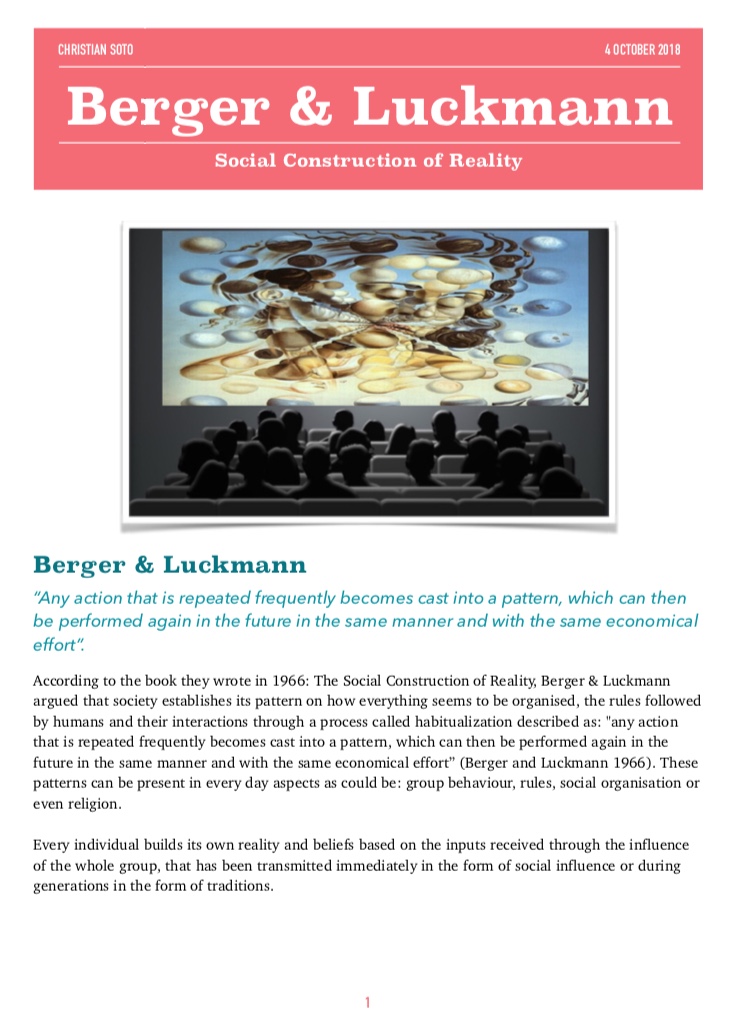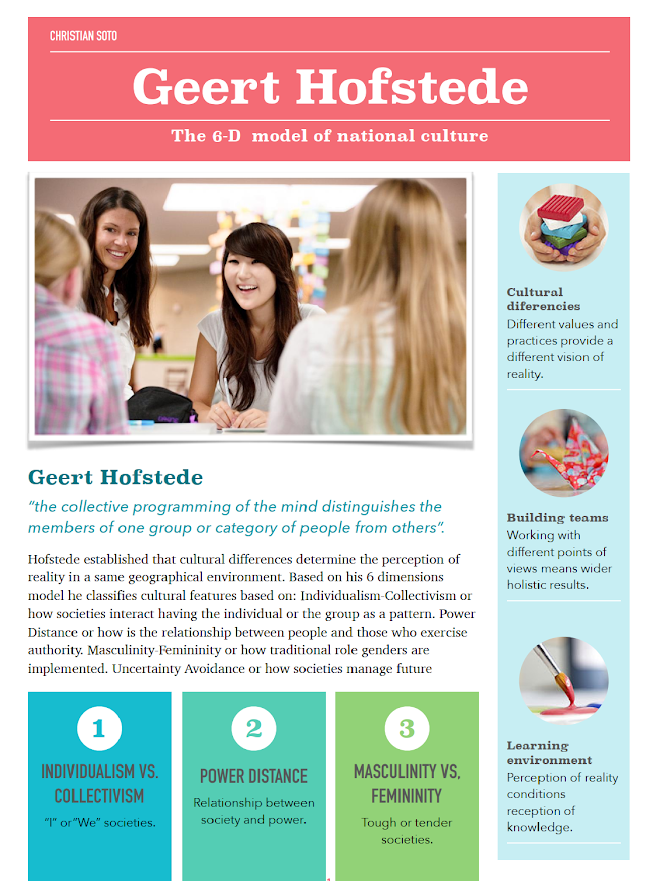EduSci. Reflections from part 1 & 2.
After these two first sessions I got a general idea of the theories behind learning processes. Through my personal research I discovered how Hofstede and Berger/Luckmann “blame” the social pressure as a key component on educational mechanisms. The perspective given by sociologic features define the ultimate perception of reality. Geographical areas, as isolated islands, have developed different cultural schemes in the quest of the absolute truth (as Socrates defined and as it was very well explained by our classmate Sunday Olaleye ). Through all these different authors I realised how close these theories are related to PHILOSOPHY and hence, to PSYCHOLOGY. In this regard, theorists as Piaget analyses learning processes from the very early stages of human being’s development in an almost scientific way. In the other hand, Socrates as one of the fathers of Western philosophy, questions himself about the foundations of the whole learning process in the form of: “what is the trut


